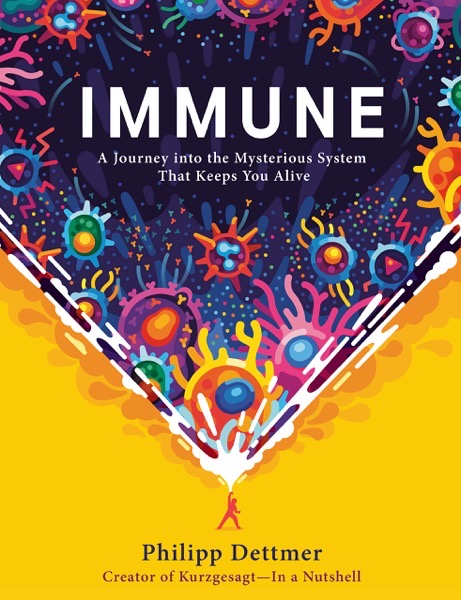
Given the current state of a global pandemic that can severely affect your health (and given the fact that we recently tested positive to the pathogen responsible), this book was an especially relevant read.
It’s an easy to read (and often hilarious) look into how our immune systems work. The incredible complexity of our bodies is amazing, but Dettmer uses all sorts of analogies to make things easy to digest.
For example:
“You can imagine the MHC class II receptor as a hot dog bun that can be filled with a tasty wiener. The wiener in this metaphor is the antigen. The MHC hot dog bun molecule is so important because it represents another security mechanism. Another layer of control.”
The book goes into various detail about how our bodies fight off bacterial and viral infections, the response to an allergic reaction, and how things like vaccines work.
In fact, the whole section on vaccines was especially interesting and particularly devastating to those of the crazy anti-vax persuasion. Prior to the COVID-19 epidemic, one of the biggest anti-vaccination campaigns was against the measles vaccine.
I’ll admit to not knowing much about measles and took it for granted that I was immunized from it. After reading this book, all I can think is, holy crap, what a horrible disease to have willingly chosen to get! Measles actively destroys your immune system and makes you lose immunity to other diseases.
“So in the end, being infected with measles erases the capacity of the immune system to protect you from the diseases that you overcame in the past. Even worse, a measles infection can wipe away the protection that you might have gained from other vaccines, since most vaccines create memory cells. Therefore, in the case of measles, what does not kill you makes you weaker, not stronger. Measles causes irreversible, long-term harm and it maims and kills children.”
Overall, this was a quick, easy and enjoyable book. Highly recommended!
Immune by Philipp Dettmer
























